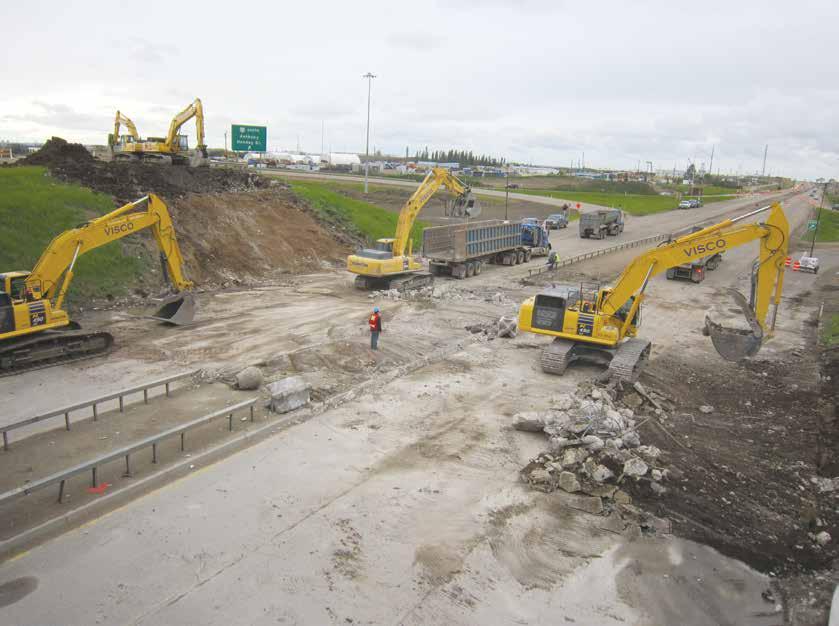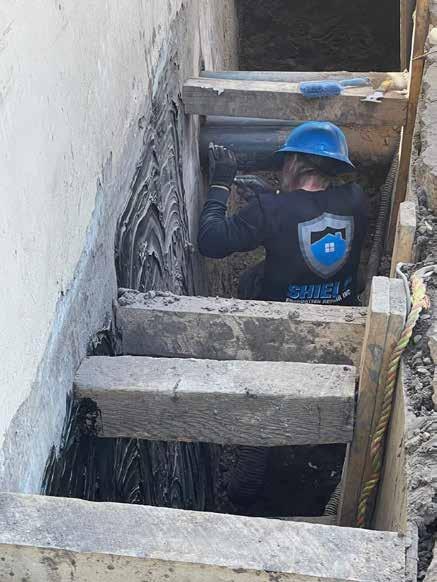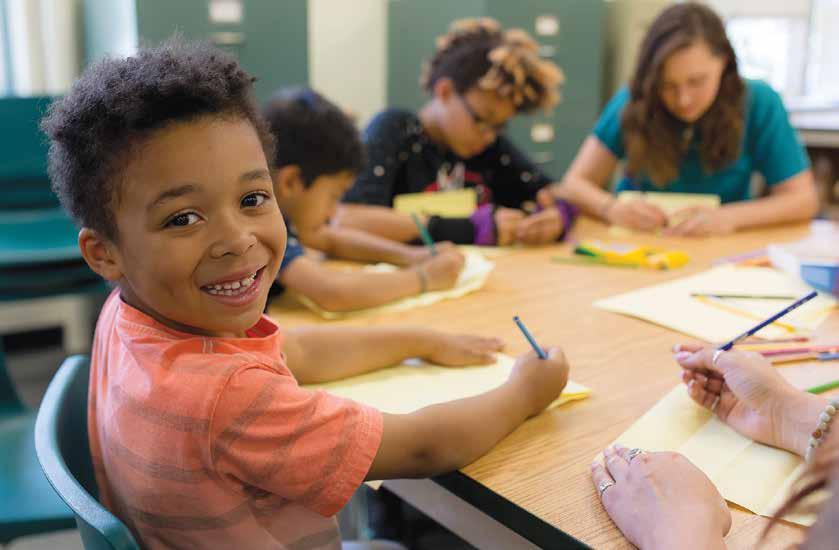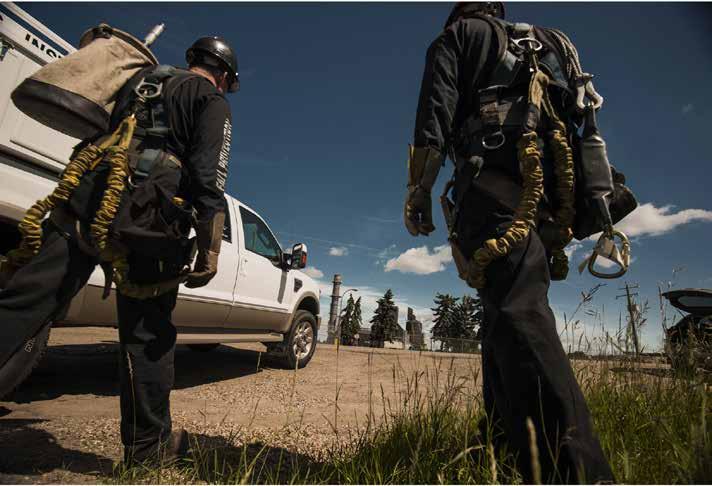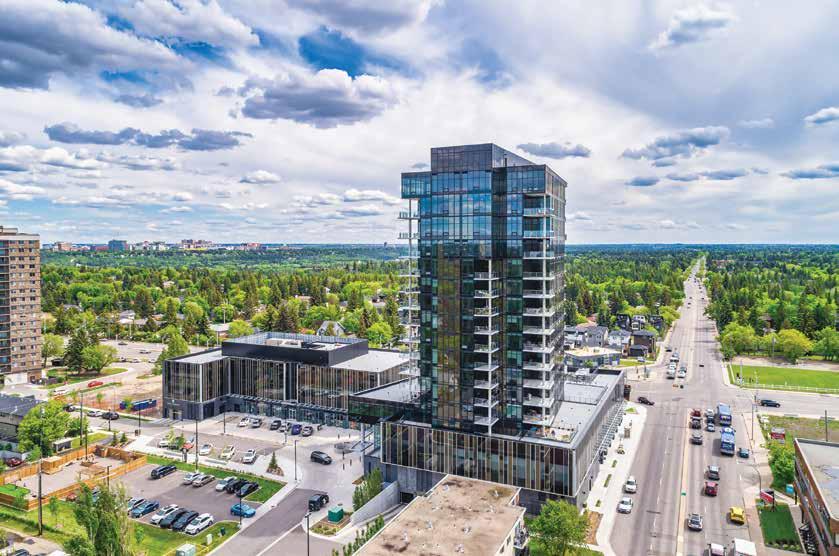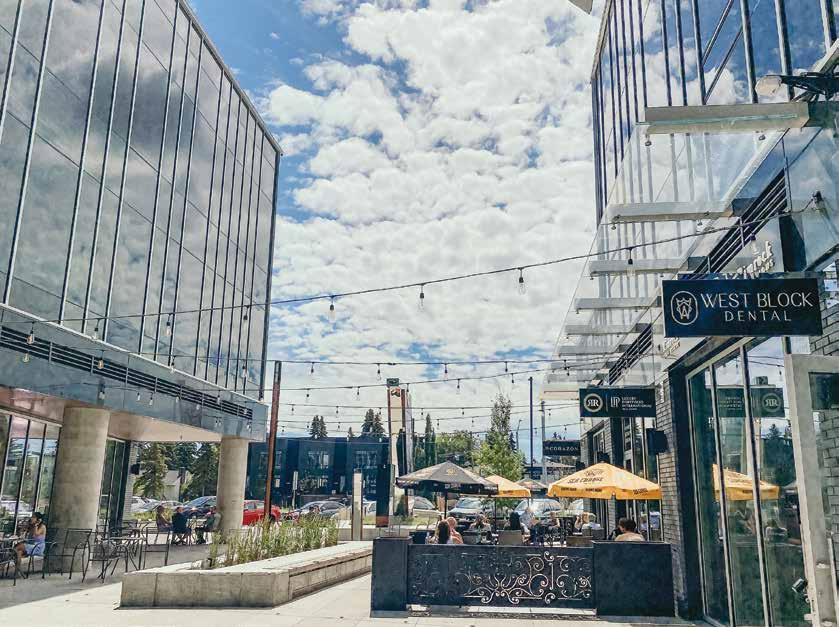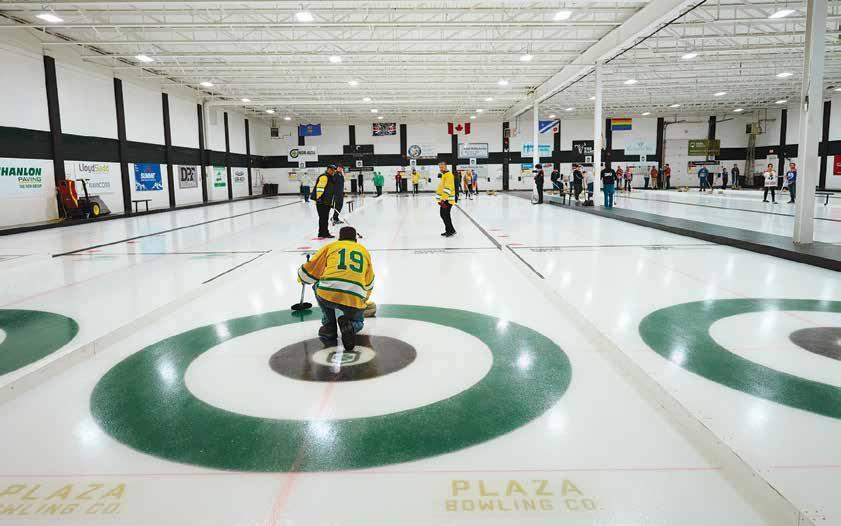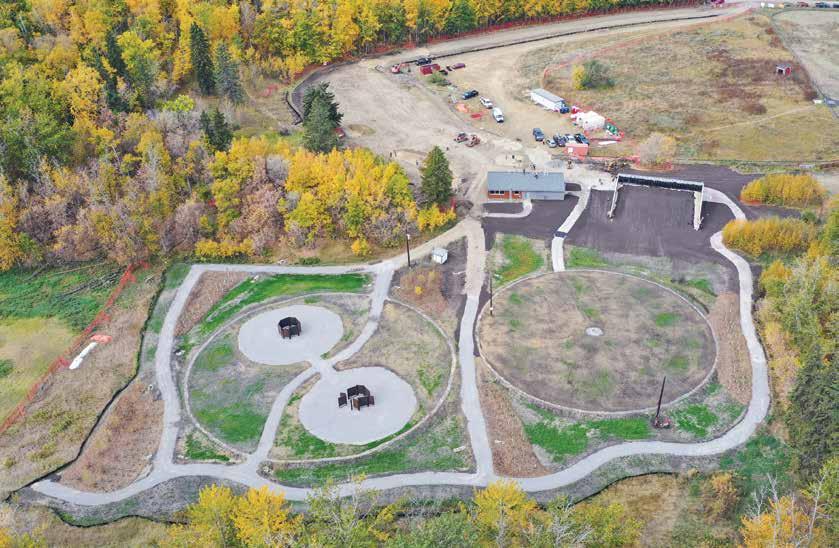
3 minute read
SACRED LAND PROJECT NOW COMPLETE
With the grand opening planned for September, construction is complete on the new $6.5 million kihcihkaw askî project (which means “sacred land” in Cree) in Whitemud Park located in southwest Edmonton.
This impressive project provides a natural setting for Indigenous peoples, groups, and communities to host spiritual ceremonies, sweat lodges, cultural camps, and talking circles, in addition to growing medicinal herbs and facilitating intergenerational learning in a welldesigned outdoor space.
Advertisement
Historical And Cultural Significance
By Lisa Kopochinski
The idea for kihcihkaw askî was originally conceived by Indigenous community members 15 years ago in 2006. The kihcihkaw askî site is historically and culturally significant and has served as a ceremonial site in the past.
“Long before becoming farmland, the kihcihkaw askî site was used for many centuries by Indigenous people foraging for medicines for healing purposes,” says Trish Kuffler, general supervisor, facility infrastructure delivery, City of Edmonton. “In the late 1960s, the Fox family endowed the former farmland to the City of Edmonton for public recreation. Due to the significance of this area and the fact that the land was available, the site was chosen.”

This site now provides an accessible place where urban Indigenous youth and families can access cultural resources near the heart of the city. It is also a place where Edmontonians can learn about the traditions and history of Indigenous people, a location to provide land-based education, and a place to re-establish relationship and connection to ceremony and land. It is also the first purpose-built, permanent, urban Indigenous cultural and ceremonial grounds in Canada.
“The significant importance of this project led to the idea being integrated
Master Plan was approved in 2009. In 2011, city council approved funding for kihcihkaw askî Phase 1,” says Kuffler.
From 2015 to 2017, Indigenous consultation, design, and environmental reviews took place. This consultation included a grand council gathering hosted by Native Counseling Services of Alberta in 2015, as well as two Council of Elders meetings in 2015 and 2016 to provide feedback on the design and site plan.
In 2017, the City completed a review of the environmental impact assessment and site location study, and supported the design and development plans. The environmental impact assessment and site location study received committee approval on January 29, 2018, as per the River Valley Bylaw.
In 2020, the City began working with the Indigenous Knowledge and Wisdom Centre, and the project was approved by council to proceed with construction.
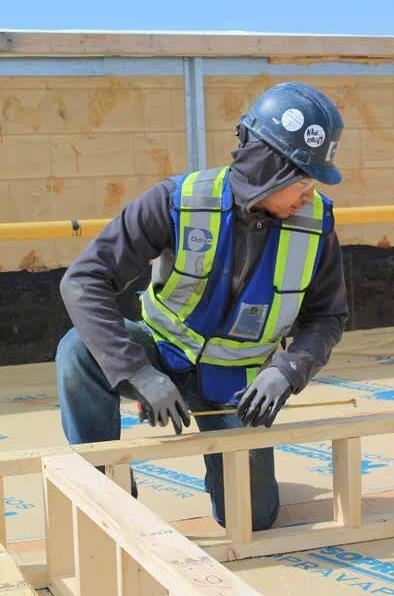
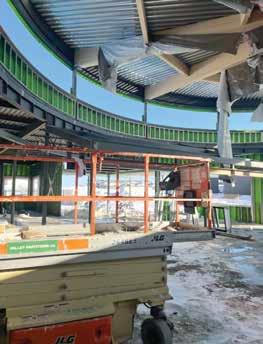
Project Stakeholders
Some of the stakeholders in this impressive project included the Indigenous Knowledge and Wisdom Centre (IKWC) and the Native Counselling Services of Alberta.
The IKWC manages and operates the facility, says Chelsea Burden, project manager, facility infrastructure delivery, City of Edmonton.
“As the operator, who is also developing and facilitating programming, their participation in the planning, design, and delivery of the project was essential. The Counsel of Elders was formed to work with the kihcihkaw askî project team throughout design and construction. The Counsel of Elders provided spiritual and cultural leadership for the project and was an invaluable resource for the entire project team.” support from the City of Edmonton in 2015. Thirty-two elders participated on the first day, followed by 36 elders the next day. The gathering discussed how Indigenous communities could work together at kihcihkaw askî, with a focus on protocols for ceremonies.
Alberta’s highways are essential economic corridors. But their condition is deteriorating and repairs will cost taxpayers more in the future if the Government of Alberta doesn’t change course. The ARHCA is proposing solutions to fix our roads. Please join our cause and support better highways.

By using the hashtag #FIXourROADS you can help amplify the message on line. Thank you!
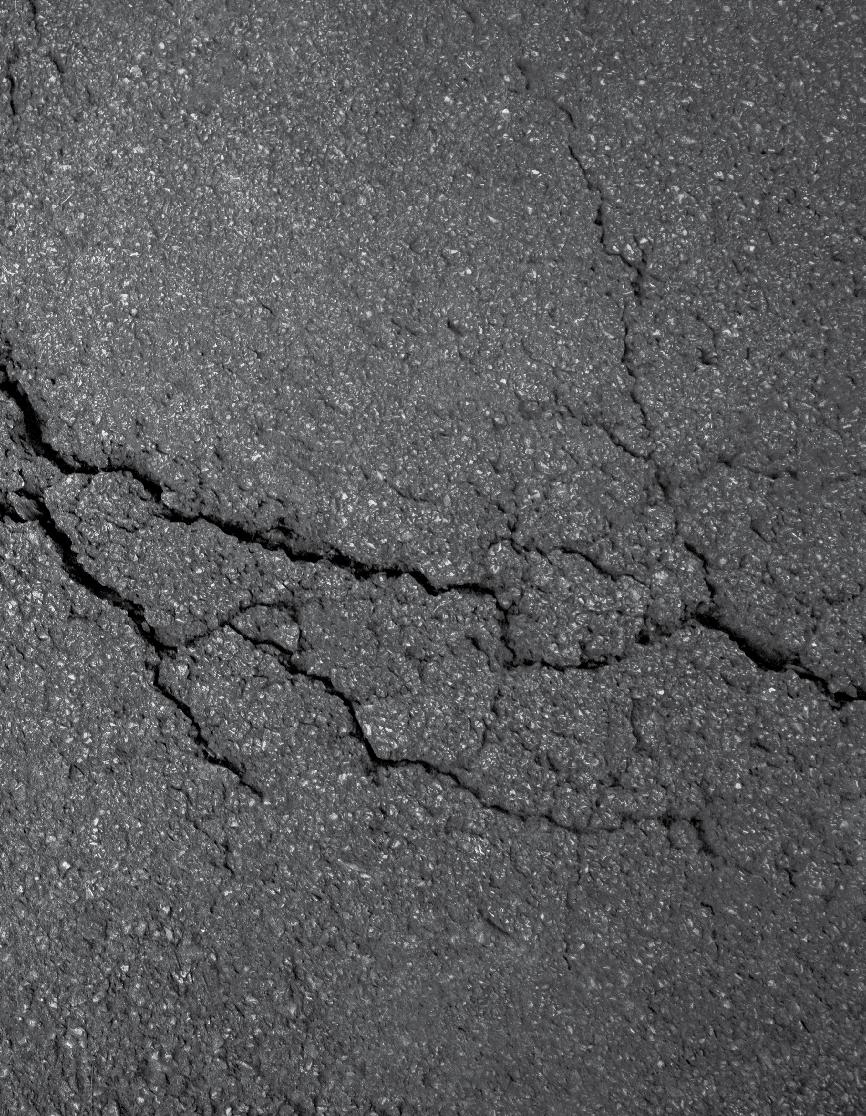
“The elders identified priorities for the first year of operation, and identified opportunities, barriers, and limitations,” says Burden. “This feedback was integrated into the Phase 1 design.”
Two Counsel of Elders meetings followed in 2015 and 2016 to gather feedback on the schematic design report and revised site plan. These
Deboski, Delnor Construction
meetings helped revise project documents.
Project Site
The project selected Delnor Construction as they wanted a construction manager “with a commitment to partnering with a local Indigenous employment agency and engagement consultant to deliver the project,” said Kuffler. “The procurement documents also included further requirements to identify potential Indigenous subtrades to perform scopes of work.”
Construction started in November 2021 with substantial completion reached this past March.
“We are proud to have been the construction manager on this project, overseeing all scopes and phases of the work, including preconstruction,” says Jason Deboski, corporate project development leader and principal at Delnor Construction.
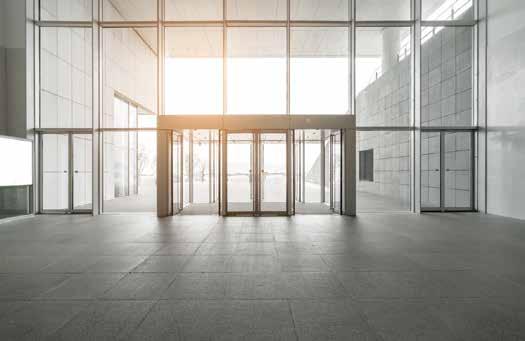
The project includes two structures on the site in addition to two sweat lodges, a pavilion, amphitheater, a circular area for tipis, and much more.
Deboski says that one of our major focuses on this project was ensuring that Indigenous people had a major role in constructing the project, and that Indigenous-owned businesses were aware of this project and had an opportunity to bid and perform services on the project where possible.
“Our team was honoured to lead the construction of this unique project that

